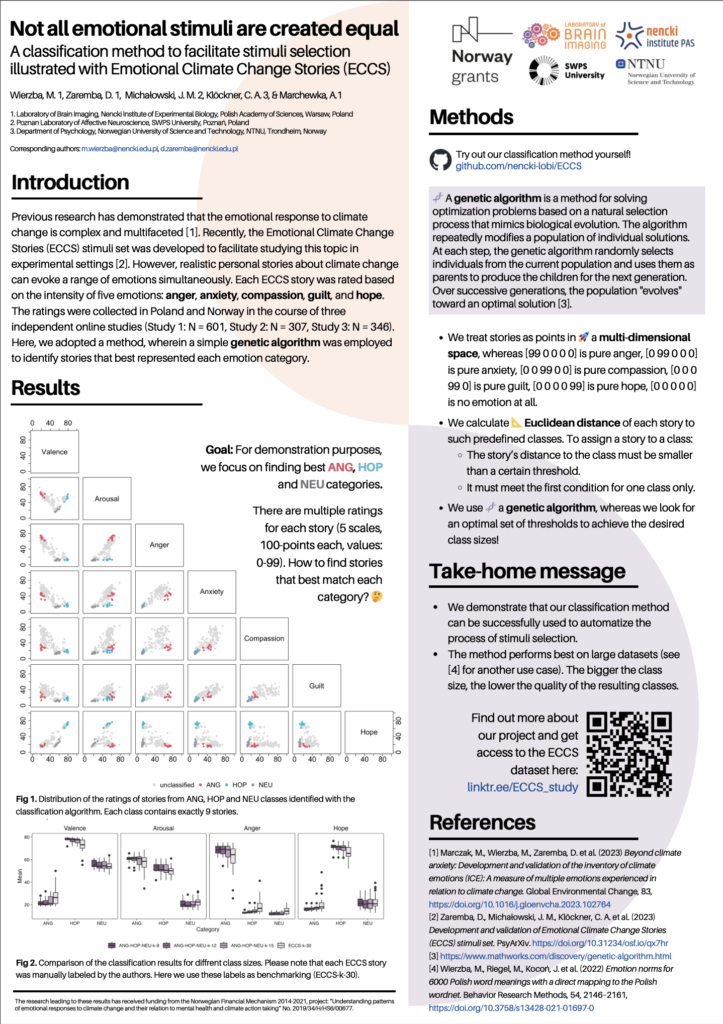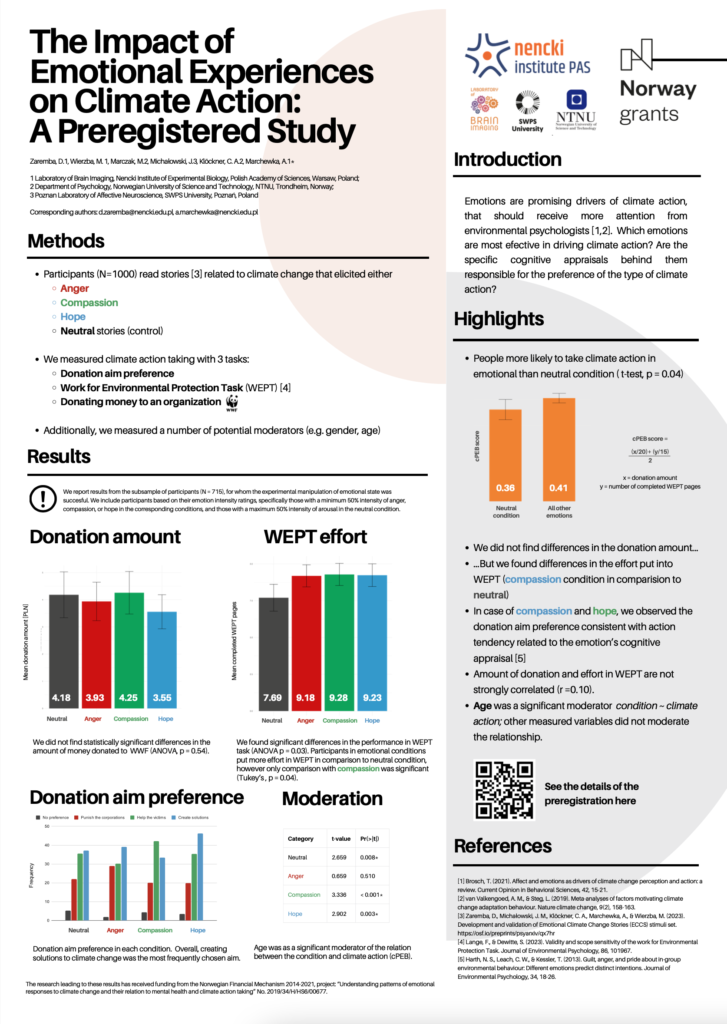Climate emotions team still fights the jet lag after a long journey to Social and Personality Psychology Society Annual Convention in San Diego, CA. We have presented two posters, reporting on our preregistered experimental study and a unique method used to categorize emotional stimuli.
Małgorzata Wierzba presented a poster titled “Not all emotional stimuli are created equal,” sharing her innovative classification method designed to streamline the selection of stimuli for experimental studies. A simple genetic algorithm allowed her to identify which emotional stories from our Emotional Climate Change Stories database were most representative for each emotion category. This method is an effective and automated way to select experimental stimuli, also beyond affective science.
On the following day, Dominika Zaremba presented a poster titled “The Impact of Emotional Experiences on Climate Action: A Preregistered Study.” Conference attendees could learn about the impact of climate emotions on climate action (operationalized as monetary donations and effort in a special task called WEPT). Interestingly, the specific emotions (anger, compassion, and hope) did not impact the amount of donations, but individuals experiencing compassion exhibited greater effort in the WEPT task – they spent more time doing a boring task to donate more money to the WWF!
Overall, our results received great interest. The conference allowed us to talk to other experts in the field, learn about novel methods and state-of-the-art approaches to data analysis, and discover new research findings. If you were not able to see the posters live, you can check them out below:


